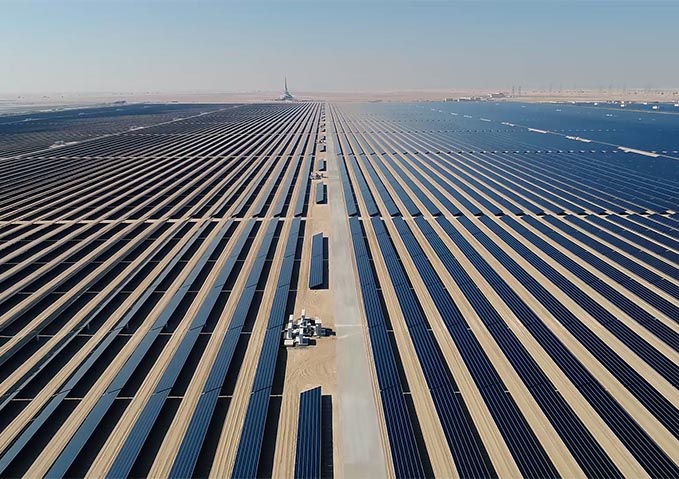Saeed Mohammed Al Tayer, Vice Chairman of the Dubai Supreme Council of Energy, has announced that Dubai reduced its carbon emissions by 33% in 2020, exceeding the target of the Dubai Carbon Abatement Strategy 2021 by more than double.
The Dubai Carbon Abatement Strategy aims to reduce carbon emissions by 16% by 2021. This new achievement emphasises that Dubai is moving steadily towards becoming a carbon-neutral economy by 2050.
Commenting on the announcement, Al Tayer said, "All organisations under the umbrella of the Dubai Supreme Council of Energy work together to achieve the vision and directives of His Highness Sheikh Mohammed bin Rashid Al Maktoum, Vice President, Prime Minister and Ruler of Dubai, to make Dubai a global hub for green economy and sustainable development and achieve the Dubai Clean Energy Strategy 2050 and the Dubai Net Zero Emissions Strategy 2050 to provide 100% of energy from clean energy sources by 2050, as well as the Dubai Demand Side Management Strategy, which aims to reduce electricity and water demand by 30% by 2030.
"The achievement of reducing carbon emissions by 33% in 2020 emphasises that we are on the right track to achieve the strategic objectives to become a carbon-neutral economy by 2050 to ensure a brighter and more sustainable future for generations to come."
Al Tayer explained that the pioneering programmes and initiatives implemented by the organisations under the umbrella of the Dubai Supreme Council of Energy have contributed to this significant reduction in carbon emission. Factors for this achievement include increasing the share of clean and renewable energy capacity, which is now 11.38% of Dubai’s energy mix, the expansion of district cooling which saved 650 gigawatt-hours of electricity in 2020, incentives that have increased the use of electric vehicles, and other pioneering initiatives to reduce carbon emissions in Dubai.
Ahmed Buti Al Muhairbi, Secretary-General of the Dubai Supreme Council of Energy, said that this achievement underlines the importance of the joint efforts of individuals and organisations to support national and global efforts to mitigate climate change and global warming.
He noted that Dubai has a plan for the next 30 years that covers the energy and water sectors, transportation, industry, buildings, and waste. The plan also includes all the necessary enablers, regulations and R&D.













